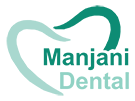While the services you receive may vary, here’s what you can expect at your first tooth checkup:
A review of your medical history. Tell your dentist about your diet or medication as these can affect your treatment and oral health.
A conversation with the dentist about any concerns you have regarding your oral teeth, mouth or general health, we encourage you to ask questions.
An oral questionnaire, including a clinical examination of tooth tissue, soft tissues, and additional examinations if necessary.
A comprehensive treatment plan, with recommended treatment and constant care by your dentist.
Your dentist will adapt your comprehensive treatment plan, including your hygienic appointments, based on your initial questionnaire. Treatment may begin as early as the day after the clinic’s appearance. For more information about ongoing care, go on the services you are interested in.
What to do in the case of a dental emergency?
Here are instructions on how to deal with common dental emergencies.
- Toothache
Contact your dentist as soon as you feel discomfort or pain. - Broken, broken or cracked teeth
Rinse your mouth with warm water and put a cold compress on your face. Go to the dentist right away. If the tooth is broken or fractured, bring the dental layer wrapped in damp gauze or a damp towel. - Toughed or fallen
If your tooth moves due to trauma, dial your dentist. For a dropped tooth, gently place the missing tooth in the nest if possible by holding the tooth from the crown using a clean layer. (If the tooth is dirty, first rinse the root, but do not clean or remove any attached tissue.) If it is not possible to insert it again, hold the tooth under the tongue and go to the dentist immediately. - The broken jaw. Apply ice or a cold cool on the face. Go to the dentist or emergency center immediately.
- Bitten tongue or lip Clean the area with a damp cloth and place a cold compress in the area to reduce the swelling. If the blood flow persists or if it is excessive, go to your dentist or an emergency center. Professional teeth cleaning Tooth cleansing or dental prophylaxis is a procedure which involves professional dental cleaning. Tooth cleansing is an important dental treatment that prevents and keeps control of mouth disease.
Professional teeth cleaning
Tooth cleansing or dental prophylaxis is a procedure which involves professional dental cleaning. Tooth cleansing is an important dental treatment that prevents and keeps control of mouth disease.
Why Should we do professional tooth cleaning?
To have healthy teeth – Professional cleaning involves removing soft and hard residues (gaps) that can cause serious periodontal problems if not treated. Although patients brush their teeth with brush and interdental yarn, it is impossible to perform an optimal cleaning such as professional cleaning done by a dentist or dental hygienist. It is therefore necessary that professional cleaning is done every six months in order to prevent oral diseases and to have better oral health.
For better aesthetics – Professional cleaning also includes professional dental flossing, which eliminates pigmentation from tobacco, tea, coffee, etc …. It also provides a beautiful and healthy smile to the patient.
To avoid the bad breath of the mouth – Periodontal diseases are often characterized with halitosis. Bad taste is usually caused by dental plaque or gingival inflammation as well as periodontal problems, but also from caries. Removal of gills and bacteria significantly improves the scent of the mouth.


